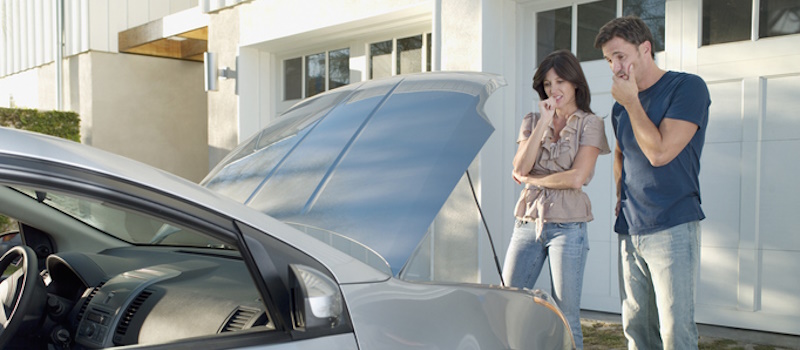Why Your Car Won't Start and How To Fix It
Why Your Car Won't Start and How To Fix It

Why Your Car Won't Start and How To Fix It
When you turn the key in your vehicle’s ignition, you expect the car to start. Unfortunately, several factors could prevent your vehicle from starting right away. Consider the troubleshooting steps you can take to address the problem and get your car moving again.
Turn the Steering Wheel
Some cars feature an anti-theft locking steering wheel. To unlock the steering wheel and get your car started, turn the key slightly in the ignition and move the steering wheel right and left.
Change the Gear
Most cars only start if they’re in park mode, not drive, reverse or another gear. After you check the gear or push the brake pedal or clutch, try to start your car.
Fill the Gas Tank
Running out of fuel could prevent your car from starting. You could pack extra fuel if you frequently forget to fill the tank before it empties.
Install a New Fob Battery
A low or dead battery could prevent the smart key fob from transmitting and signaling your car to start. You could replace the fob battery yourself or ask your mechanic for help.
Switch the Spark Plugs
Your car engine might turn over but not start if the spark plugs are old. Changing the spark plugs could allow your car to start.
Test the Vehicle’s Battery
When you turn the ignition, listen for engine sounds. Slow cranking or a clicking sound could indicate a dying battery. In this case, check the battery cable connections. You can clean corroded connections with baking soda and water or use a wrench to tighten the connections. However, if you hear no sounds, the car’s battery might be dead. You may need to jump-start the battery and then replace it.
Fix the Starter
The starter is an essential component of an internal combustion engine. When it fails, the car won’t start but the lights might come on or you may hear a clicking sound when you crank the ignition. You can test the starter and then install a new one if necessary.
Replace the Alternator
A vehicle’s alternator recharges the battery and operates components like the lights and stereo. The alternator might need to be replaced if your car doesn’t start.
Inspect the Fuel Pump
Gas moves from the tank to the engine via the vehicle’s fuel pump. A bad fuel pump affects your car’s ability to start and operate properly. In this case, inspect the fuel pump to make sure it’s working properly.
Restore the Fuel Filter
After trapping debris and contaminants, the fuel filter could become clogged and prohibit gas from getting to the car’s engine. Replacing the dirty fuel filter could get your vehicle moving again.
Substitute the Ignition Switch
A faulty ignition switch can prevent your car from starting. You may notice this problem if the key doesn’t turn after you insert it into the ignition switch or if the dashboard lights flicker.
Perform Regular Maintenance
Several factors could prevent your car from starting. When this happens, you can troubleshoot the problem yourself or call roadside assistance offered by your insurance company or auto club. Additionally, schedule regular maintenance to keep your vehicle in top working condition.
